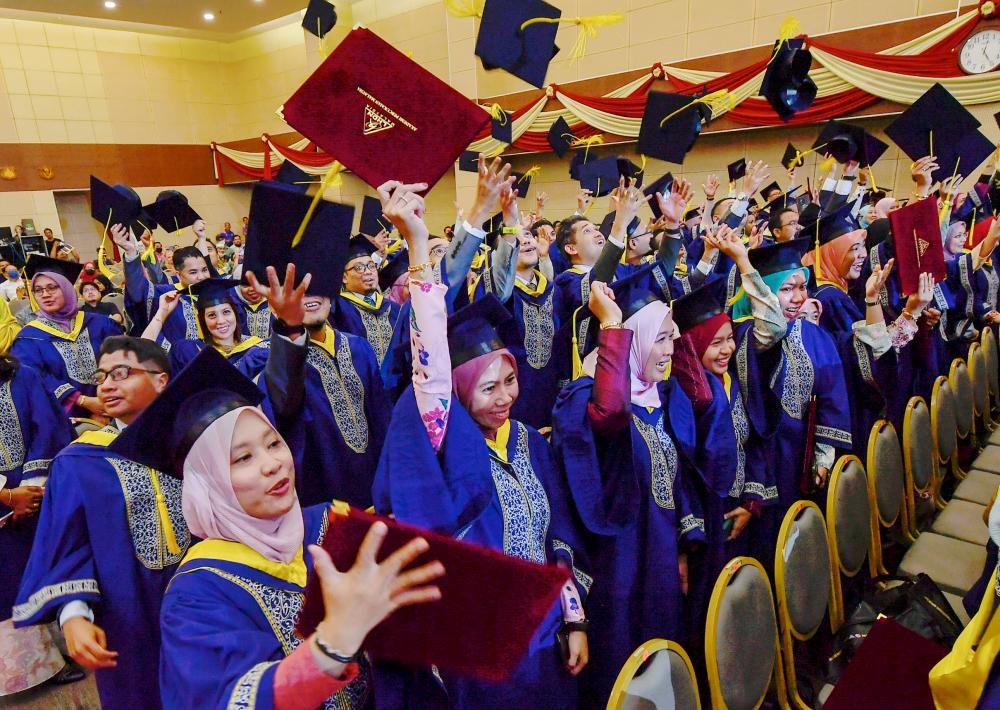PETALING JAYA: Should fresh graduates accept any job just to be employed although it does not match their qualifications?
Despite an academic saying they should not do so, the Malaysian Employers Federation (MEF) said being employed provides working experience.
They were commenting on a Khazanah Research Institute report last week that said about 40% of graduates in the country face tough times securing well-paying jobs that match their skill sets.
UiTM Faculty Business Management (Human Resources) senior lecturer Dr Muhammad Aiman Arifin said when fresh graduates accept any job, it would significantly impact their professional development and future success.
“Despite receiving a salary, a job mismatch would erode their interests and passion, leading to demotivation and a challenge in developing professionally,” he said.
The Khazanah report also revealed that 65.6% of graduates in the country are earning a starting pay below RM2,000, with only 10.8% earning more than RM3,000, which underscores the relatively low starting salaries among fresh graduates.
Muhammad Aiman said based on his analysis, most mismatched graduates are likely to end up job hopping and are bound to leave their companies within a short time.
“Individuals typically pursue employment opportunities that align with their interests and passion. However, if their skills fall short of the required qualifications, they may resort to applying for positions outside their field.”
He said it is essential to recognise that a mismatch in qualifications can significantly affect career progression and promotions.
“If we fail to address the problem of a mismatch, it can have negative repercussions on their prospects and the longevity of their careers,” he said.
He added that individuals who tend to accept jobs to avoid unemployment would likely experience economic consequences, particularly on their salary advancement.
“Initially, there might not be any issues, especially for entry-level positions due to the challenges of securing employment. Eventually, they will find themselves at a standstill and are unable to progress.
“This can pose challenges when seeking promotions or salary increases as they may lack the necessary qualifications or experience that’s required,” he said.
Muhammad Aiman said to ensure that graduates meet industry requirements, the education system needs to work with industry on current demands and the latest technological advancements in specific fields.
He said industry representatives play a crucial role in advocating for potential graduates by informing them about current industry demands and the latest technological advancements.
Meanwhile, MEF president Datuk Dr Syed Hussain Syed Husman encouraged fresh graduates to be open-minded and flexible when exploring job opportunities as acquiring new skills should not be missed.
“While the starting salary might be low, it will not reflect an individual’s long-term potential for career advancement and salary growth.
“If graduates prove they have the potential despite not being a graduate of a specific discipline, employers will readily train, offer higher salaries and retain them.”
Syed Hussain said in mismatched situations, many industries invest in training programmes to nurture talent and ensure that fresh graduates contribute effectively.
“In the beginning, fresh graduates undergo a learning and training process to understand the organisation’s operations, culture and values. As they gain experience and contribute to the organisation, they will receive improved compensation.”
Syed Hussain said employers’ efforts should be commended as without their initiatives, it would be difficult for such graduates to secure employment.
“As individuals acquire more skills and knowledge, they become better equipped to make strategic decisions that benefit themselves and their employers.”









